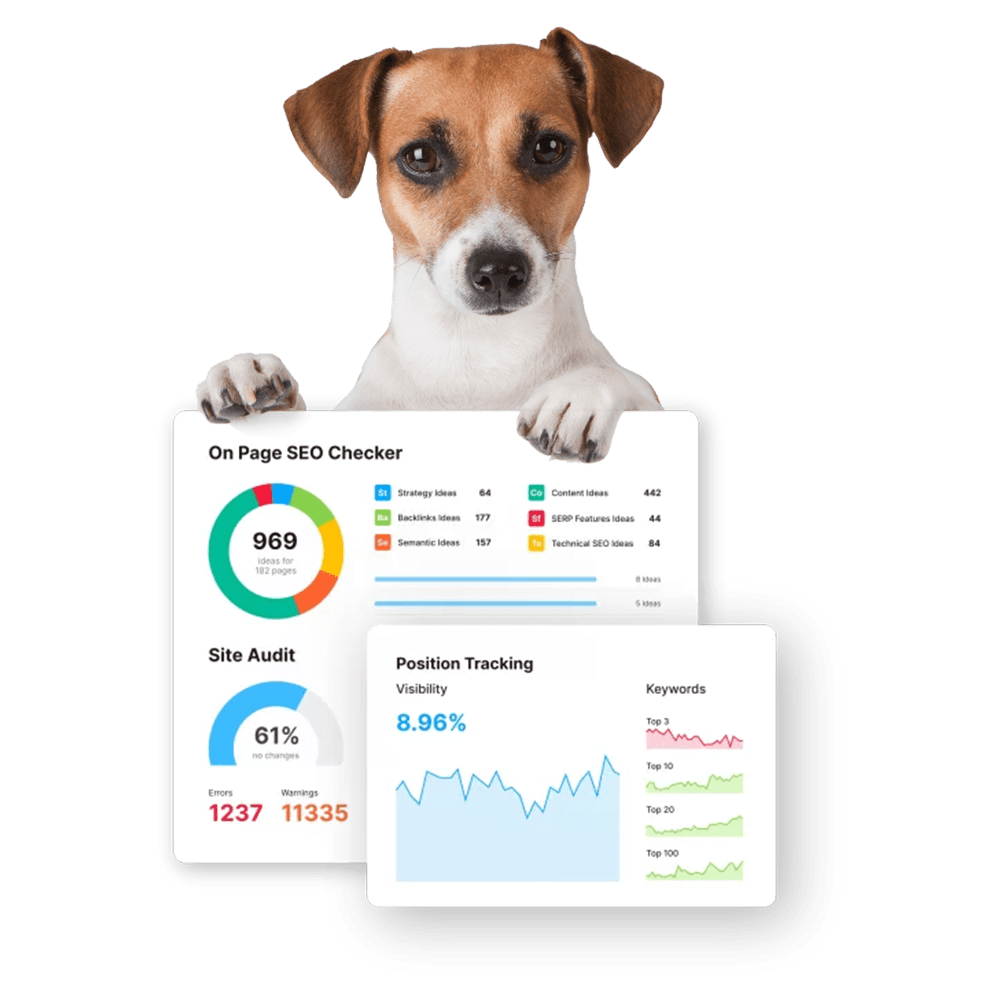


Obtaining high-quality links to your website can significantly improve your SEO strategy and boost your search engine rankings.
We can help you;
Discover potential backlink sources.
Develop better outreach strategies.
Choose the best websites to place your links.
Create better backlinks.
Keep an eye on websites that rank above you.
Conduct outreach and link-building to increase the authority and SEO of your domain.
Discover new link-building and PR opportunities.
SEO, or Search Engine Optimisation, is the process of optimising your website's content and structure in order to improve its visibility and ranking in search engine result pages. The goal of SEO is to increase the quantity and quality of organic traffic to your website by making it more visible to search engine users. SEO encompasses a wide range of techniques and strategies, including keyword research and optimisation, on-page optimisation, technical optimisation, and link building.
Using SEO for dog businesses is critical for for several reasons. To begin with, it increases your online presence, making it easier for potential customers to find you when searching for your products or services. You can increase traffic to your website and increase conversions and revenue by improving your visibility and ranking on search engine results pages.
SEO is a cost-effective marketing strategy that can produce long-term results. Unlike paid advertising, which requires ongoing investment, SEO can drive traffic and conversions to your website indefinitely, even as your business grows and evolves.
Please take a look at our guides for your specific dog business.
Optimising your website for search engines involves several key best practices, including:
Conducting keyword research to identify the most relevant and high-value keywords for your business
Creating high-quality, relevant content that incorporates your target keywords naturally
Optimising your website's structure and navigation to make it easy for search engine crawlers to index and understand your content
Building high-quality backlinks from other reputable websites to improve your website's authority and ranking
Ensuring that your website is mobile-friendly and loads quickly to provide a positive user experience
Regularly updating and optimizing your content to ensure that it remains relevant and valuable to your target audience.
By following these best practices and implementing a comprehensive SEO strategy, you can improve your website's visibility, attract more traffic, and ultimately drive more conversions and revenue.
Search engines use complex algorithms to rank websites based on a wide range of factors, but some of the most critical ones include:
Relevance and quality of content: Search engines prioritize websites that feature high-quality, relevant content that provides value to their users.
User experience and usability: Websites that are easy to navigate, provide a positive user experience, and are accessible to all users (including those with disabilities) are more likely to rank well.
Mobile-friendliness: As more and more users access the web via mobile devices, search engines prioritise websites that are optimised for mobile viewing and offer a seamless mobile experience.
Page speed: Websites that load quickly are more likely to rank well, as users tend to abandon slow-loading pages.
Backlink profile: Search engines view backlinks from other reputable websites as a sign of a website's authority and relevance, so building high-quality backlinks is critical for improving your website's ranking.
By focusing on these critical factors and optimising your website accordingly, you can improve your website's ranking and attract more organic traffic.
To measure the success of your SEO efforts, you need to track key metrics that align with your business goals and objectives. Some of the most important metrics to track include:
Organic search traffic: This metric measures the number of visitors that arrive at your website from organic search results.
Keyword rankings: This metric tracks the position of your website for targeted keywords on search engine results pages.
Conversion rate: This metric measures the percentage of visitors who take a desired action on your website, such as making a purchase or filling out a contact form.
Backlink profile: This metric tracks the number and quality of backlinks pointing to your website.
Bounce rate: This metric measures the percentage of visitors who leave your website after viewing only one page.
We use Google Analytics to assess website data and can provide comprehensive reports to help you understand more about the visitors to your website.
When implementing an SEO strategy, there are several common mistakes to avoid, including:
Keyword stuffing: Overusing keywords on your website can harm your rankings and make your content less valuable to users.
Neglecting mobile optimisation: With more and more users accessing the internet on mobile devices, it's crucial to ensure that your website is mobile-friendly and provides a good user experience on all devices.
Ignoring user intent: Focusing solely on search engine rankings and neglecting the needs and intent of your target audience can result in poor engagement and low conversion rates.
Not monitoring analytics: Without monitoring and analysing your website's performance, you won't be able to identify areas for improvement or make data-driven decisions to optimize your SEO strategy.
Neglecting off-page optimisation: While on-page optimisation is important, neglecting off-page factors such as backlinks and social signals can harm your website's authority and relevance in the eyes of search engines.
By avoiding these common mistakes, you can ensure that your SEO strategy is effective and helps you achieve your business goals.


Your website should be bringing in enquiries—but is it? If business is quiet, it’s time to take action. Sign up for my FREE 4-week digital marketing plan and get easy, actionable steps to improve your website, rank higher on Google, and attract more clients—without spending a fortune.